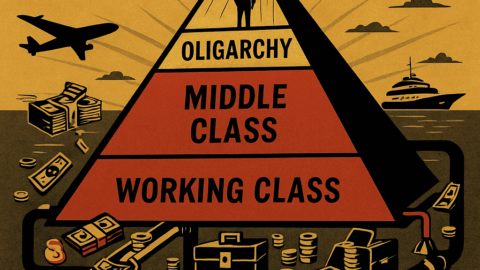How to “break out of the Matrix,” meaning freeing ourselves from systems of control, illusions, or limiting beliefs, by taking the following steps, drawing on philosophical, psychological, and practical strategies:
1. Awareness and Self-Reflection (Waking Up)
- Question Reality: The first step in breaking out of any matrix—whether a metaphorical or social one—is becoming aware of the system you are trapped in. This means questioning the nature of reality and your beliefs. Similar to the protagonist Neo in The Matrix, it starts with asking whether the world you see is real or a construct.
- Philosophical Inquiry: Engage with philosophical concepts like Plato’s Allegory of the Cave, which explains how most people live in ignorance, mistaking shadows for reality, and Descartes’ Meditations on First Philosophy, which questions the reliability of sensory experience.
- Cognitive Biases and Social Conditioning: Recognize how you are shaped by societal norms, cultural expectations, and cognitive biases. Tools like mindfulness meditation, journaling, or therapy can help increase self-awareness, which is key to identifying what influences your beliefs.
2. Deconstructing Social Constructs (Recognizing Control Mechanisms)
- Understanding Ideologies: Many aspects of “the matrix” are social constructs—systems of control such as politics, religion, media, or consumerism that shape our behavior and values. Breaking out involves deconstructing these ideologies to understand how they limit your freedom and influence your decisions.
- Media Literacy: Be critical of information sources, particularly the news, social media, and entertainment, which often perpetuate specific narratives. Learning how to analyze media biases and underlying agendas is crucial.
- Financial Systems: Understand how economic systems (capitalism, debt, wage labor) can serve as tools of control, keeping individuals locked into cycles of consumption, materialism, and dependency.
3. Unplugging from Technological Dependency
- Digital Minimalism: Just as in The Matrix, technology plays a major role in shaping our realities. Limit your reliance on technology, especially social media and algorithm-driven content. These platforms create echo chambers that reinforce existing beliefs and restrict exposure to diverse perspectives.
- Control Your Data: Be aware of how much data you’re sharing and how it is used to influence your behavior. Practicing digital minimalism—reducing screen time, practicing focus, and prioritizing real-world interactions—can help break technological dependence.
4. Developing Inner Freedom
- Psychological Liberation: Cultivate inner freedom through emotional intelligence and mental resilience. This involves confronting fears, insecurities, and emotional wounds that hold you back.
- Terror Management Theory (TMT): Recognize that fear of death and existential anxiety drive many of our choices (as explored in The Worm at the Core). By facing these fears head-on and finding meaning beyond external achievements, you can reduce the psychological control they exert over you.
- Spiritual Exploration: Many people “break out” of limiting beliefs through spiritual exploration—meditation, philosophical inquiry, or religious faith. Practices like Zen Buddhism, Christianity, Stoicism, or Transcendental Meditation help detach from the ego and the material world.
5. Fostering Independent Thought and Action
- Educate Yourself: Break free intellectually by pursuing knowledge beyond mainstream narratives. Read books from different perspectives, explore science, history, and philosophy critically. Cultivate a habit of lifelong learning.
- Creative Expression: Engage in creative pursuits—art, writing, or entrepreneurship—that allow you to express individuality and not conform to the status quo. Creativity is a way to exercise freedom and break out of pre-set molds.
6. Building Strong, Authentic Relationships
- Community and Connection: Surround yourself with like-minded individuals who encourage questioning, growth, and authenticity. Having a support network of people who value independence, curiosity, and truth will help you resist conformist pressures and empower you to pursue personal freedom.
- Collaborative Awakening: Sometimes breaking out of the matrix involves a collective effort. Movements for social justice, environmental sustainability, or political reform often challenge existing systems and create spaces for new ways of thinking and living.
7. Taking Control of Your Life’s Narrative
- Self-Ownership: Ultimately, breaking out of the matrix is about taking control of your life and decisions. By gaining autonomy over your time, choices, and beliefs, you reject systems of control and manipulation.
- Purpose-Driven Living: Align your life with your true values and purpose, rather than societal expectations. This could mean changing your career, lifestyle, or relationships to reflect your deeper self and beliefs.
Conclusion:
Breaking out of “the Matrix” requires a deep process of questioning, deconstructing societal norms, and cultivating self-awareness and autonomy. It involves confronting uncomfortable truths, resisting cultural pressures, and ultimately crafting a life that reflects true freedom of thought, belief, and action. By focusing on awareness, personal growth, and creative expression, one can transcend the illusion of control and live authentically.







